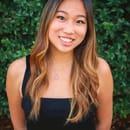Children in the American schooling system learn about Rosa Parks and how her refusal to give up her seat to a white passenger on a public bus precipitated the Montgomery Bus Boycott, which ignited the civil rights movement. However, she was not the first Black civil rights activist who refused to give up her seat. Nine months prior, 15-year old Claudette Colvin defied the same segregation laws, yet she did not receive the same recognition as Rosa Parks.

The bus driver recruited the help of two police officers after Colvin refused to give up her seat who she informed, “It’s my constitutional right to sit here as much as that lady. I paid my fare, it’s my constitutional right.” Colvin was arrested on several charges, including violating the segregation laws of Montgomery, Alabama.
Instead of being taken to a juvenile detention center, Colvin was taken to an adult jail where her fear and panic had set in. She waited for three hours until her mother and pastor bailed her out.
At her segregated school, Colvin’s class received a strong education in Black history and learned about Harriet Tubman, the abolitionist who led hundreds of enslaved people to freedom through the Underground Railroad. They also learned about Sojourner Truth, a former slave who spoke to large crowds on slavery and human rights, specifically advocating for abolition, temperance, and civil and women’s rights. So, when asked why she refused to relinquish her bus seat, Colvin divulges that “it felt as though Harriet Tubman’s hands were pushing me down on one shoulder and Sojourner Truth’s hands were pushing me down on the other shoulder. I felt inspired by these women because my teacher taught us about them in so much detail.”
The National Association for the Advancement of Colored People (NAACP) considered using Colvin’s case to challenge the segregation laws but decided against it because of her young age and pregnancy as a result of sexual assault. In Rosa Parks’ memoir, Parks says, “I took a particular interest in [Colvin] and her case,” and invited her to youth groups every Sunday at the Luther Church. Parks was a secretary of the Montgomery chapter of the NAACP, and when she was arrested nine months later for the same defiance as Colvin, she was chosen to be the face of the resistance against segregation. Despite her lack of recognition, Colvin was an instrumental predecessor to Park. Colvin’s attorney, Fred Gray, tells Newsweek, “Claudette gave all of us moral courage. If she had not done what she did, I am not sure that we would have been able to mount the support for Mrs. Parks.” Claudette Colvin is an unsung hero that paved the way for the beginnings of the civil rights movement.




